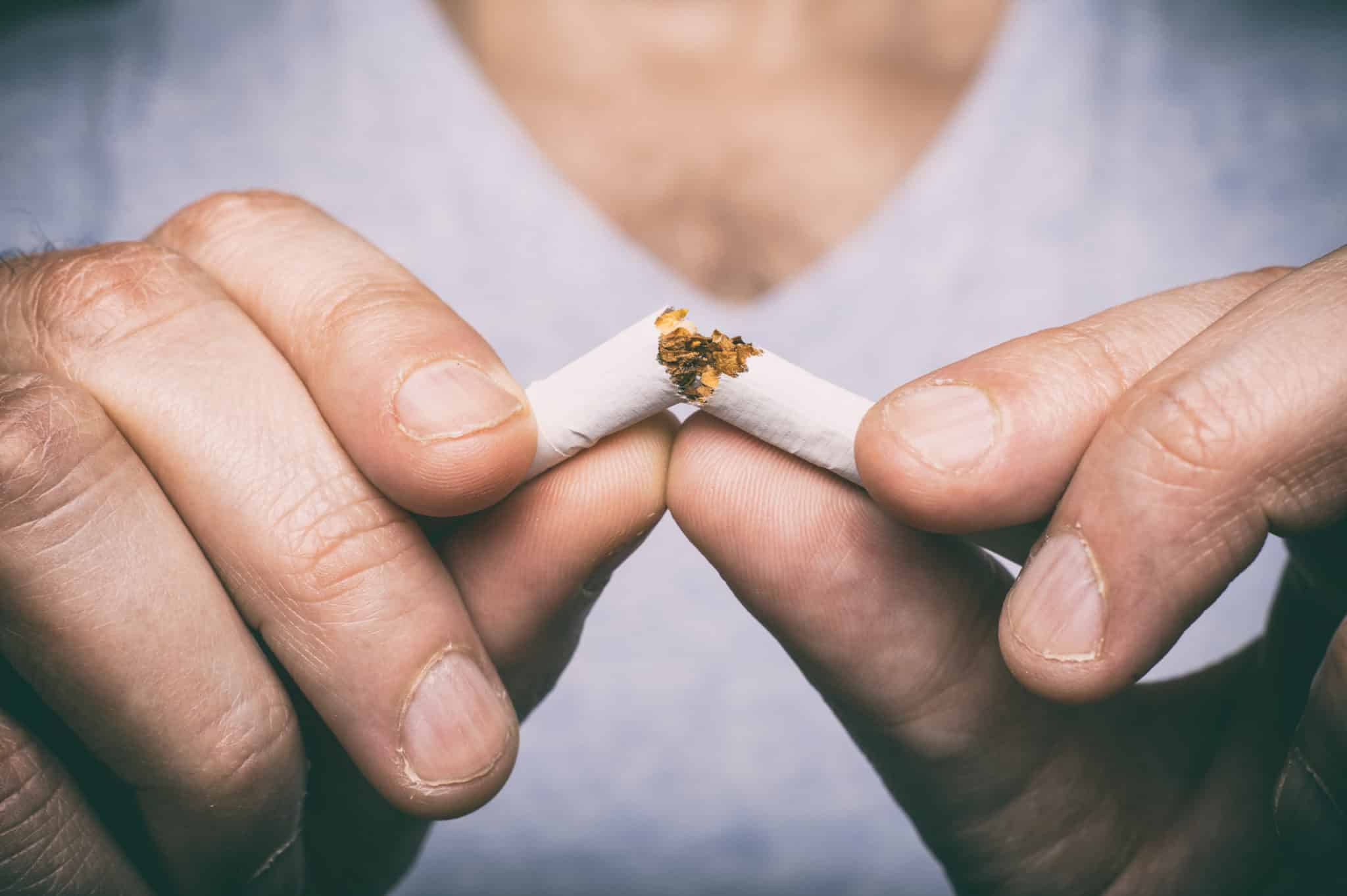With ‘Stoptober’ taking place this month – an annual campaign which encourages people to try giving up vices like smoking, drinking and drugs – local hypnotherapist Karen Martin suggests ways you can effectively curb your cravings and also give up bad habits for good…
What’s your poison?
These days, there are more drinkers than smokers seeking hypnotherapy to help them change their habits. I’m seeing more recreational drug users in my clinic than ever before. And many of those who struggle with weight management have a very obvious addiction to sugar.
These issues are all symptomatic of the normal human desire for pleasure. The rapid biochemical hit created by relieving the craving for addictive habits or behaviour trumps delayed gratification every time. Impulse control goes out of the window when the need for whatever your poison may be overrules conscious, rational, logical reason.
Most of those who visit me for help with changing their dependent habits don’t consider themselves ‘addicts’. They want to cut back or control rather than stop completely. We are all prone to craving things that make us feel good and most of us aren’t rolling around in the gutter while indulging our weaknesses.
Mixed messages
Since the formation of the Alcoholics Anonymous (AA) movement in the 1930s, addiction has been regarded as a chronic and relapsing disease that requires medical treatment and ongoing management. The 12 Steps Programme and medical treatment can be effective for managing extreme dependency but they aren’t always the best solutions.
The World Health Organisation defines a disease as “an abnormal condition of the body or mind that causes discomfort, dysfunction, or distress to the person affected or those around him or her”. By this definition, addiction is a disease.
But it doesn’t fit neatly into this box as you can’t ‘catch’ an addiction and you can’t buy cancer in the pub. As a former smoker, I remember having to persevere through the nausea to get hooked. It’s not the first pint that makes an alcoholic but repeated guzzling. The occasional line of cocaine isn’t the same as a thousand-pound-a-month habit. An annual flutter on the Grand National doesn’t cause the debt and devastation of compulsive online gambling. On some level, at some point, the addict is the master of their own destiny.
Brain power
The human brain is a complex organ capable of remarkable feats. One of its most impressive abilities is its plasticity, which enables the brain to change and adapt in response to experience. This plasticity allows us to learn new skills, form memories, and recover from injury. It also makes addiction a difficult condition to treat.
The fuel in the engine of addiction is the neurotransmitter dopamine. It is released in response to pleasurable experiences, such as eating, sex, or using drugs. When dopamine is released, it creates a sense of pleasure and reinforces the behaviour that led to its release. Over time, repeated drug use can lead to changes in the brain’s reward system, making it less sensitive to natural rewards and more responsive to drugs. This key trigger for addiction is known as neuroadaptation.
In other words, addiction is a learning disorder, a maladaptive pattern of behaviour that is reinforced over time. Brain plasticity enables change through new experiences and learning opportunities. Recovery can be achieved by focusing on changing the underlying patterns of behaviour that lead to addiction, rather than simply treating the symptoms as if it were a disease.
The cure
So, addiction isn’t always a life sentence. It can be overcome without medical intervention or becoming a ‘recovering’ addict. The label of addiction can be stigmatising and disempowering, leading to feelings of shame and hopelessness which make recovery harder. An addict motivated to change their behaviour can recode their neurology using tools and strategies that give them back impulse control. Then they can find healthier ways to get their dopamine fix.
Once an addict, not always an addict
Brain imaging studies have shown that addiction can cause changes in brain structure and function similar to those seen in diseases like Alzheimer’s and Parkinson’s. Wernicke-Korsakoff syndrome is a form of dementia caused by chronic alcohol abuse. Once that damage is done, there’s no going back.
The neurological changes created by addictive behaviours make it difficult to resist cravings and avoid relapse. However, research has shown that the brain’s plasticity also offers hope for recovery. Activities that promote brain health like exercise, meditation and hypnotherapy can heal much of the neurological dysfunction and physical damage caused by drugs.
Whether addiction is a disease, a disorder, or something else entirely, what matters most is providing compassionate and evidence-based care to those who suffer from it. More people will achieve lasting recovery and regain control over their lives with treatment focused on their individual needs and experiences.








